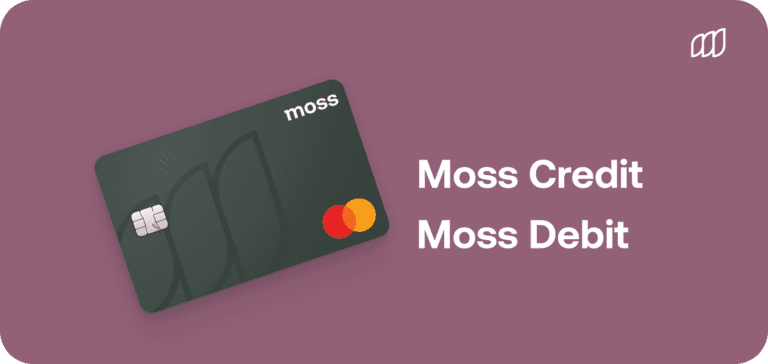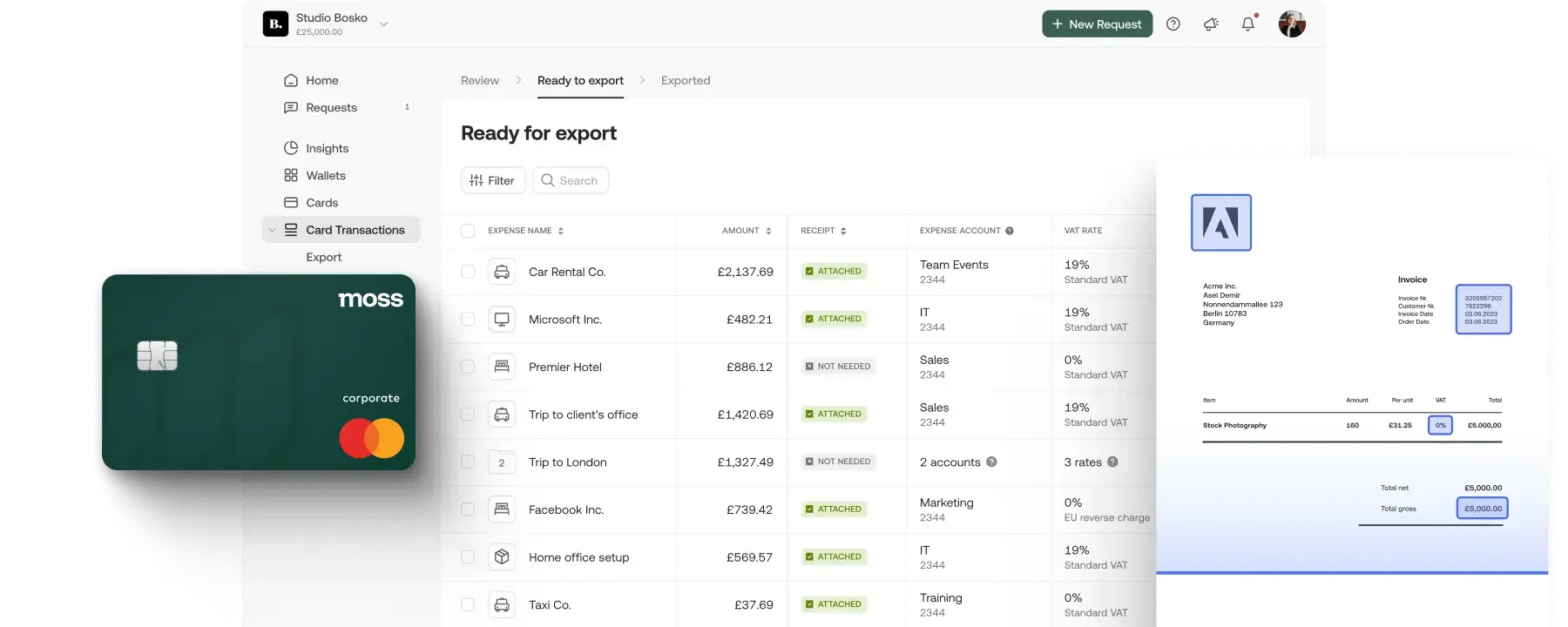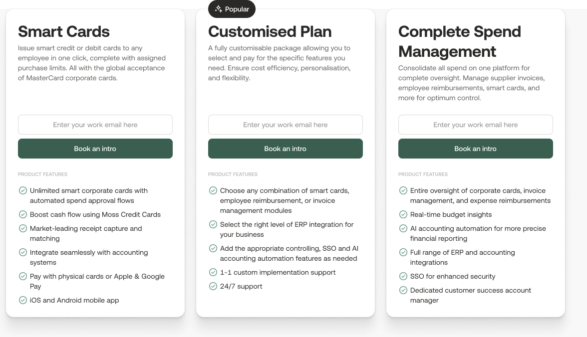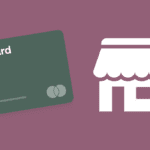Nowadays, people have many options for cashless payments. Smartphone and smartwatch payments are particularly modern. However, the most popular method is still the card. A distinction must be made between credit cards and debit cards. Both enable cashless payments from the bank account – and yet they differ fundamentally in how they work. Our guide provides an overview.
Credit card vs debit card in brief
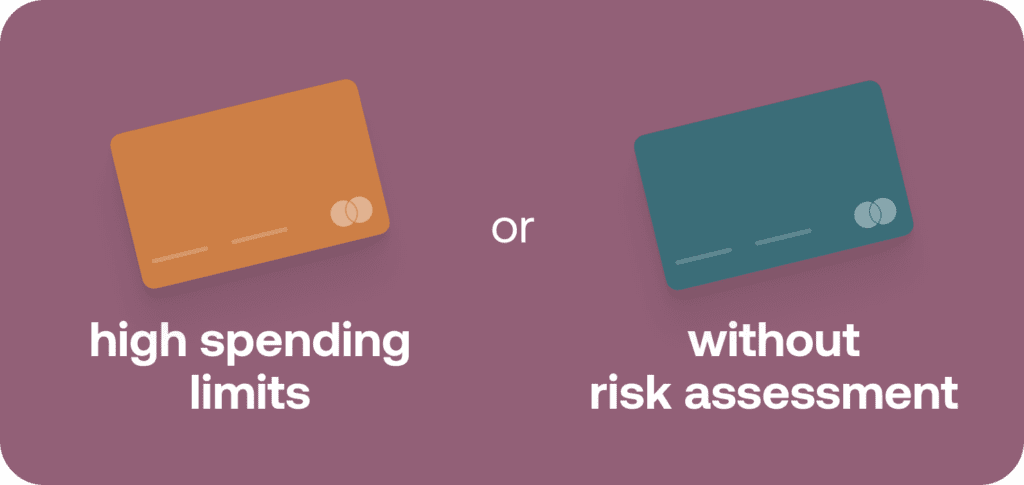
Credit and debit cards enable their owners to make cashless payments: on site in shops and online in e-commerce. In both cases, the respective cards are linked to the user’s account – the crucial difference between the cards is the time at which the account is debited and the consequences this can have for the cardholder.
What Is a debit card?
With a debit card, only the amount of money that is actually in the account can be spent. Because if you pay with a debit card, the money is debited from your account immediately or within a very short time. And if there is nothing left on the account, nothing can be debited and consequently paid. Depending on the financial institution and the individual contract, an account may indeed be overdrawn to a certain limit, but this is fixed – and overdrawing results in the payment of potentially high interest, which places an economic burden on the cardholder.
What Is a credit card?
It is different with a credit card: when you make a payment with a credit card, it is not charged until later, usually at the end of the month. In the time between the product purchase and the debit, the bank grants a credit, so to speak. At the end of the accounting period, the outstanding amount is finally debited from the account. This gives the cardholder the freedom to spend more than the account balance – as long as the difference can be covered at the end of the month when the debit is due.
If there is less money in the account at the end of the month than is due for the credit card transactions, interest payments are incurred. In addition, credit cards have a limit on the amount of credit that depends on the cardholder’s income and capital.
Debit vs credit card difference
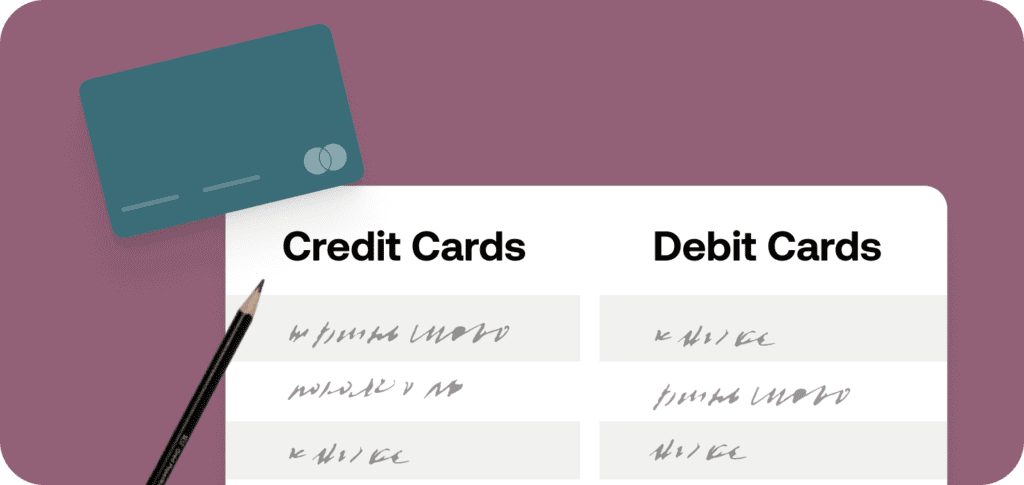
The latter aspect leads to the following conclusion: to apply for a credit card, you must prove your creditworthiness. If one cannot do this, the bank will not grant credit and thus not a credit card. In this case, only the debit card remains as an option. We have summarised the most relevant differences between debit and credit cards in the following table.
| Debit cards | Credit cards |
| Allows payments up to the amount on the linked account | Allows payments in the amount of the granted credit limit, which may exceed the amount on the linked account |
| In case of a payment, the money is debited from the linked account immediately or within a very short time | In case of a payment, the money is debited from the linked account not until the end of the accounting period, usually at the end of the month – in the meantime, the amount is granted to the user as a credit |
| Sometimes the linked account can be overdrawn up to a certain limit, in which case interest will be charged on the difference | If the account does not hold the full amount of the credit at the end of the accounting period, interest will be charged on the difference |
| To apply for a debit card, the applicant does not need to have a good credit score | To apply for a credit card, the applicant must have a good credit score |
| A debit card has no effect on the creditworthiness of its holder | The credit score of the credit card holder can be increased by paying regularly with the credit card and repaying the credit always on time |
Credit cards thus provide their holders with more flexibility but require a good credit rating and good financial management to avoid financial distress.
When to use a credit card vs debit card
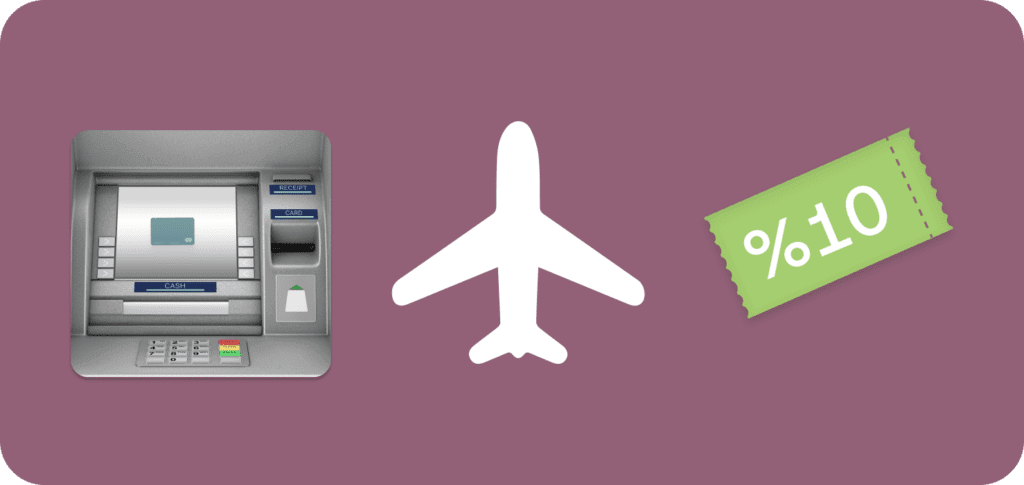
Which type of card is best all depends on the specific use case in question. Credit cards have a number of advantages over debit cards, but they also come with a much higher financial risk to a long list of credit card fees. Below we’ve outlined which type of card is more suitable for different occasions.
Withdrawing money
If you like to pay in cash and rarely use the card itself for payment, you will find a significant advantage in the debit card: withdrawals from the account are usually free of charge in the UK with the debit card. This is not the case with credit cards. Not only the withdrawal itself is charged, but additional interest is charged on the money withdrawn. So, it is a costly affair compared to withdrawing money for free with a debit card.
Improving credit score
Card payments can improve the creditworthiness of their users. However, this is only possible with a credit card. After all, only in this case credit is granted by the bank. Provided it is always repaid in full and on time, this can have a positive effect on the credit score of the cardholder over time, as it regularly shows that the holder is meeting the financial obligations.
Travel booking
Those intending to book private or business trips can make this much easier with credit cards: online booking portals in particular often expect credit card details when it comes to booking a hotel – as security. In the hotel itself, a deposit is often required, in case there is damage to the room or costs are incurred beyond the overnight stay. This deposit is only possible with the help of a credit card. Thus, credit cards are a real help when dealing with travel expenses like booking a rental car.
Cashing in rewards
Many credit card issuers reward their owners for using the cards. The more users spend, the greater the rewards – and they can vary considerably: common are cashbacks, which give the cardholder real money back, usually 1.5% of monthly spending. Some alternatives are discounts on flights, fuel, or shopping. If you spend high amounts on your card, you can get some cash back with a credit card.
Protection against fraud or damage
Especially with expensive online purchases, such as high-priced electrical appliances, there is a risk of a rude awakening – be it due to fraud by the online retailer or due to damaged goods. In both cases, it is advisable to take precautions. Credit cards make this possible. The card provider is jointly liable with the online retailer under Section 75 of the Consumer Credit Act for purchases between £100 and £30,000.
Secure financial management
Some people tend to live beyond their means and quickly lose control of their expenditure. Those play it safe with the debit card. After all, it cannot be overdrawn, or only to a certain, limited extent. The danger of getting into debt is not completely avoided, but at least it is reduced. With the debit card, one can see quite soon whether the reserves cover the expenses, whereas the credit card is charged with a delay.
Credit and debit cards for companies
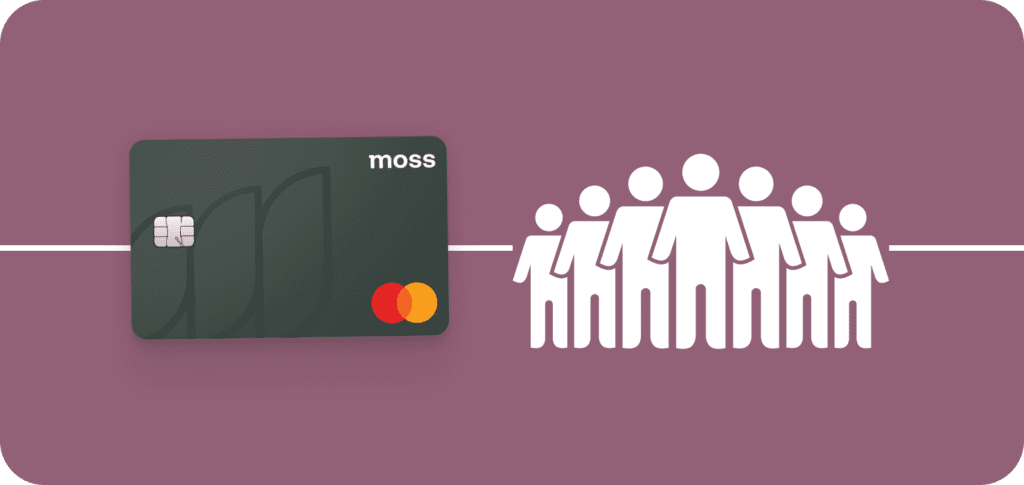
Credit and debit cards are not only perfectly suited for private expenditure: the same advantages also apply for business purposes, such as high acceptance worldwide, both online and offline, cashback or high security standards. Companies can provide their employees with corporate cards so that they can cover their employee expenses without having to pay in advance themselves. This is particularly beneficial for travel expenses, as you do not have to submit an expense report or wait for the money to be reimbursed by your employer.
Moreover, employees can easily monitor their expenses with corporate cards, which gives businesses better control over their spend and allows them to make better decisions. The individual employee’s creditworthiness is not decisive for the provision of a credit card by the employer – it is only important that the company itself has an adequate credit rating to negotiate an appropriate credit limit with the card provider.
Moss: corporate cards for every occasion

With Moss Credit and Moss Debit, Moss offers genuine credit cards with different benefits. Moss Credit provides businesses with a high transaction limit of up to £2.5 million per month and at the same time offers attractive terms of payment of up to 60 days – thus allowing companies the greatest flexibility in their expense management. Moss Debit, for its part, is linked to a credit account that must have sufficient reserves – but in return, there is no credit assessment at the outset and companies can get started straight away. There is a 0.4% cashback on all Moss Credit and Moss Debit transactions.
Moss customers can request as many physical and virtual corporate cards as they like – for any occasion. When staff members go on business trips, they can simply be assigned an individual corporate card with a specific budget. For each expense they incur while travelling, they can simply upload the corresponding receipts to the Moss web or mobile app so that the accounting department can automatically find each invoice pre-sorted in the application. Expense reports are no longer necessary with corporate cards. Another possible use is to pay for tools necessary for work, for ads, digital marketing budgets and many other work-related expenses.
Corporate cards from Moss give companies control and security over their expenses. At the same time, they help save time and effort across teams.
FAQs
Payments made with the debit card are immediately deducted from the cardholder’s account. Hence, the cardholder cannot go into debt with the debit card or only up to the limit approved by the bank for overdrawing the account. Credit card payments, on the other hand, are usually not debited until the end of the month. In the period between payment and debit, the bank grants the cardholder a credit.
When using a credit card, the cardholder receives a credit for payments for the period between the time of payment and the debiting of the amount from the account. A good credit score is a precondition for a respective credit limit with the payment provider. Through cashback programmes, credit card holders can be rewarded for their purchases with the credit card and receive small amounts of cash back.
A debit card is linked to the user’s current account. Every payment made is immediately debited from the current account or within a very short time. The debit card can be used to withdraw cash, free of charge in the UK. At the same time, it allows the user to pay online and offline – without having to prove creditworthiness. After all, credit is not granted with a debit card.
Corporate cards can be credit or debit cards – in this case, designed for companies and their employees. They make it easy for them to cover work-related expenses without employees having to pay in advance or involve supervisors. Streamlined authorisation processes, for example from Moss, allow for quick payments – and work can continue.
Those who do not have a good credit score usually cannot apply for a credit card – or only for cards with a very low credit limit. The debit card is a good alternative. You can apply for a debit card even without a good credit rating, but it has a similarly high acceptance for shopping. However, it is not possible to obtain credit from the bank with a debit card. Only the account’s current balance is available.
Credit and debit cards enable secure payments online and offline. Unlike cash, they protect their holders’ funds better against fraud, counterfeit money, or theft. They are accepted as a means of payment almost everywhere. Companies in particular benefit from the fact that they can monitor their employees’ payments precisely.
